
Skift Take: Want to attend our flagship conference, Skift Global Forum NYC, at our absolute lowest price? Save $1400 now when you register at the Super Early Bird Rate.
Travel and Freedom
When political leaders begin to do bad things, one of their first steps is to limit the movement of people in and out of the country. They use the same excuses — security or improper foreign influence — but it's always the same lie. And it always serves to remind us that travel is freedom.
Yesterday the U.S. President signed an executive action banning travel to the U.S. by people from seven predominantly Muslim nations, including refugees fleeing persecution and slaughter, as well as men and women who spent years helping the U.S. military at great threat to their own lives.
It was a deeply hypocritical move by a profoundly challenged leader, both morally and ethically. Nationals of countries included on the list can't be traced to any violent acts in the U.S. over the last 40 years. Meanwhile four predominantly Muslim countries were left off the list (Saudia Arabia, Turkey, Egypt, the UAE) if they had business interests with the president's real estate activities, despite being tied to violence in the U.S.
This last part demonstrates both the deep cynicism behind the executive action as well as a recognition of the financial importance of travel. Trump would much rather have a wealthy Saudi family visit the U.S. to shop along Rodeo Drive or Fifth Avenue than he would welcome a Syrian one fleeing genocide. It's a selective bigotry that's just as offensive as any other kind of bigotry, and it tells us a lot about the kind of leadership we're dealing with.
Today we're re-running a story we wrote back in October that puts travel into a geopolitical context. Those of us in the travel industry have to figure out how we move from here, and the biggest role we have is to fight for the right of free movement of people — ALL of us, every color, every race, every orientation — in and out of America and beyond, and the future of a connected world outside of the neo-isolationist bubbles. —Jason Clampet, Editor-in-Chief
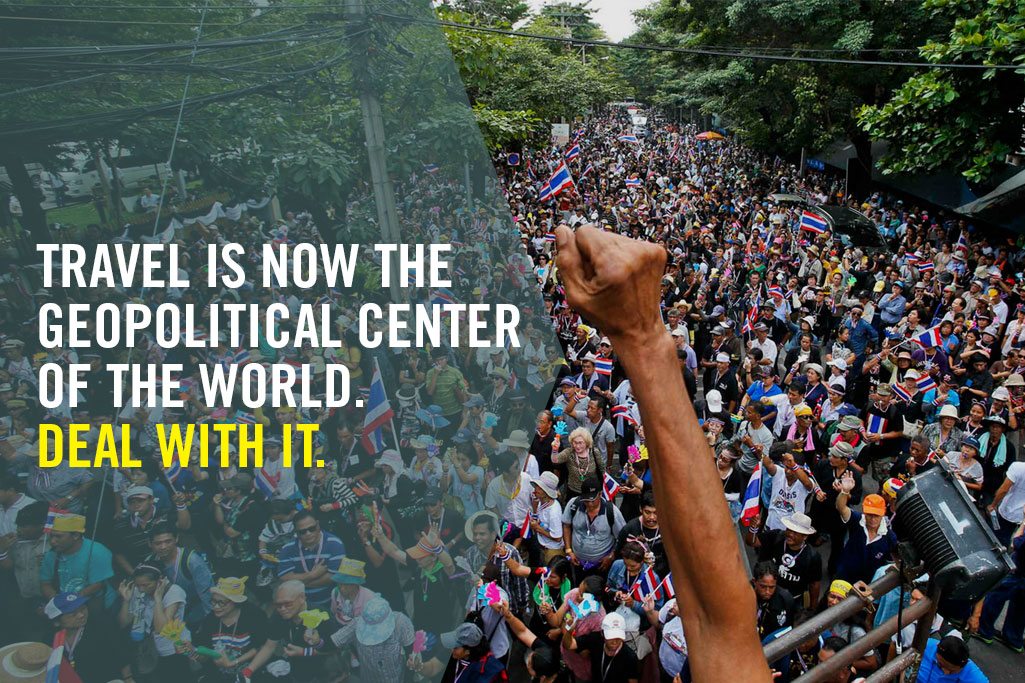
Skift Take: The year 2016 will go down as the seminal year where travel — the voluntary movement of humans from one place to another — became a key element of every major flashpoint in the world.
Every global fault line in 2016, every big clash of ideas, every big conflict that is taking away human lives today, every geopolitical upheaval, every global quality of life issue can be traced back to one common thread: travel, or the free movement of people through borders. It lies in the center of these issues.
RELATED:
Latest News
Top Stories This Week

Skift Take: Google is aggressively placing itself more prominently than ever between the consumer and the airline in the quest for bookings. What does it mean? Airlines are getting more qualified leads but are losing control and getting even more beholden to Google.
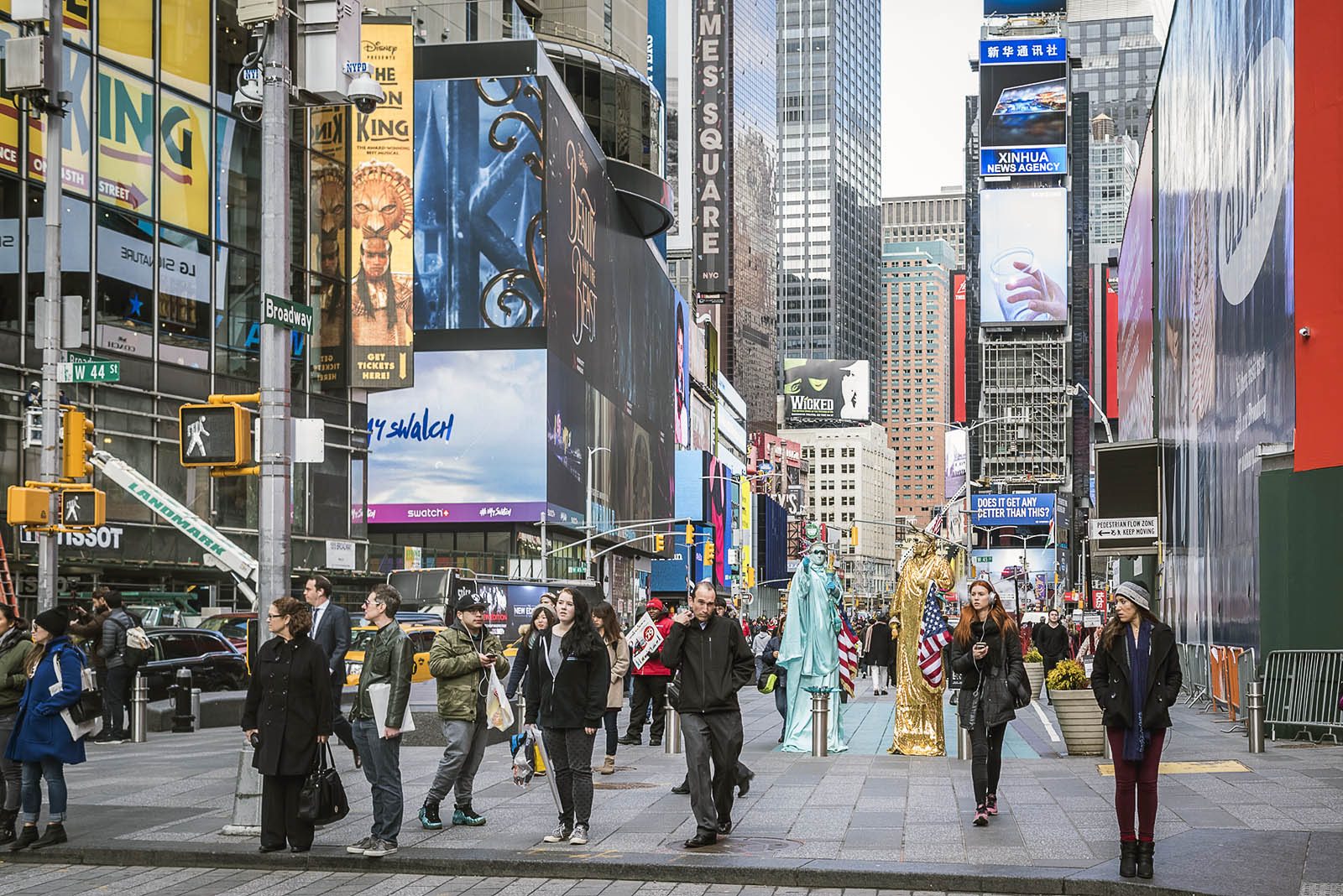
Skift Take: Read our deep dive into the complicated relationship between tourism and the U.S.A.'s most popular urban destination.

Skift Take: We already knew Hilton feels it needs more brands to compete, but weaving this particular "soft brand" into the fold, for lack of a better description, feels a bit like it's more of a blanket statement kind of brand, than one with a truly carved out identity. Or one that doesn't "occupy the same swim lanes" as some of Hilton's other brands — something Hilton CEO Christopher Nassetta has been critical of, in particular, with his company's biggest rival, the 30-brand juggernaut, Marriott.

Skift Take: It seems unfair that Emirates, based in Dubai, would have rights to fly from Athens to Newark. But that right is codified in the Open Skies agreement between the United States and the United Arab Emirates. The Trump administration could revisit that agreement, but other U.S. businesses, especially logistics companies like FedEx, could suffer.

Skift Take: A lot of public companies are actively wondering how they will counter an onslaught if they become a target of the new administration in Washington. It's therefore a fairly gutsy act when companies ranging from Expedia to Celebrity Cruises stick their proverbial necks out.
Tourism

Skift Take: Barcelona's lack of tourism management over the last decade has brought it to this point. It's unfortunate that neglect has led to extreme action, and it's hard to see how decisions made under pressure will be the best ones.

Skift Take: There will likely be many changes to this ranking as 2016 numbers are finalized as some of the most-visited cities experienced weaker currencies or violence last year. Keep in mind, however, that some of these cities base their data on airport arrivals who don't actually step foot from the airport and experience the destination.

Skift Take: While fewer international travelers visited the U.S. last year based on available data, the travelers who did visit made trips in spite of a stronger dollar and likely had higher spending power or more disposable income to flirt with for international travel.

Skift Take: Although the term arrival is somewhat ambiguous and different destinations have their own definitions for what counts as an arrival, it's clear some European destinations had a tough year convincing international travelers to visit and Western Europe bore the brunt of that.
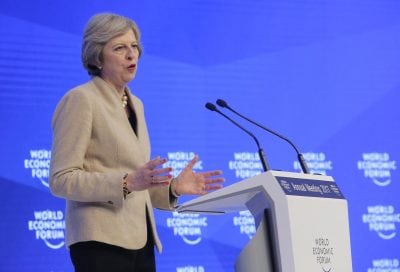
Skift Take: The Prime Minister’s speech was her most significant yet on the subject of Brexit. It gave a clear indication of how the UK would look to leave the European Union, allowing us to analyze how this might affect the travel and tourism industry.
Earnings Season
Business Travel
Hotels

Skift Take: You don't have to be a hotelier or a business executive to appreciate the insights and tales shared by the former Starwood CEO in his new book. This is especially the case at a time when everything around us seems to be in a state of transition or disruption, no matter the industry.
Airlines
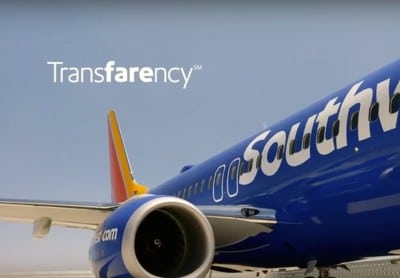
Skift Take: Yet again, Southwest is choosing not to copy United, American and Delta. Its independent strategy has worked well for the last five decades, so why change what works?
Travel Megatrends
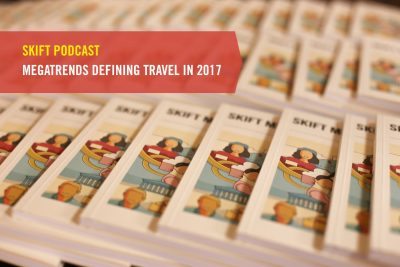
Skift Take: Tune in for our take on the biggest — some might call them mega — trends we see in store for travel this year.

Skift Take: After years of hype, hospitality and travel companies are now delivering real added value for consumers by integrating artificial intelligence into online search and booking platforms.

Skift Take: It takes patience and methodical planning to build a new market — and the cruise industry seems to be settling into China until that’s done, with whatever tweaks are necessary along the way.

Skift Take: Airbnb’s entry into the tours and activities market certainly brings the sector to the fore. If Airbnb sticks with a strategy to curate its tours and activities, going with unique and off-the-beaten-path experiences, then that is still important for the sector given Airbnb’s scale, but self-limiting. Competition is certainly a healthy thing and all the players will have to up their games.

Skift Take: Hotel chains have been successful in driving more direct traffic and taking brand share away from the online travel agencies, but 2017 will say a lot about whether their strategies are sustainable. Will lower rates for loyalty program members impact profits? And how can the chains compete long-term with online travel agencies when the latter have much deeper marketing pockets?

Skift Take: Corporate travel is finally starting to learn lessons from the consumer travel space, mostly because business travelers have been trained by their leisure travel to expect robust booking tools and more control over their trips. The travel management companies that focus the most on improving their traveler-facing technology will win this battle, and improve their clients’ travel experience in the process.